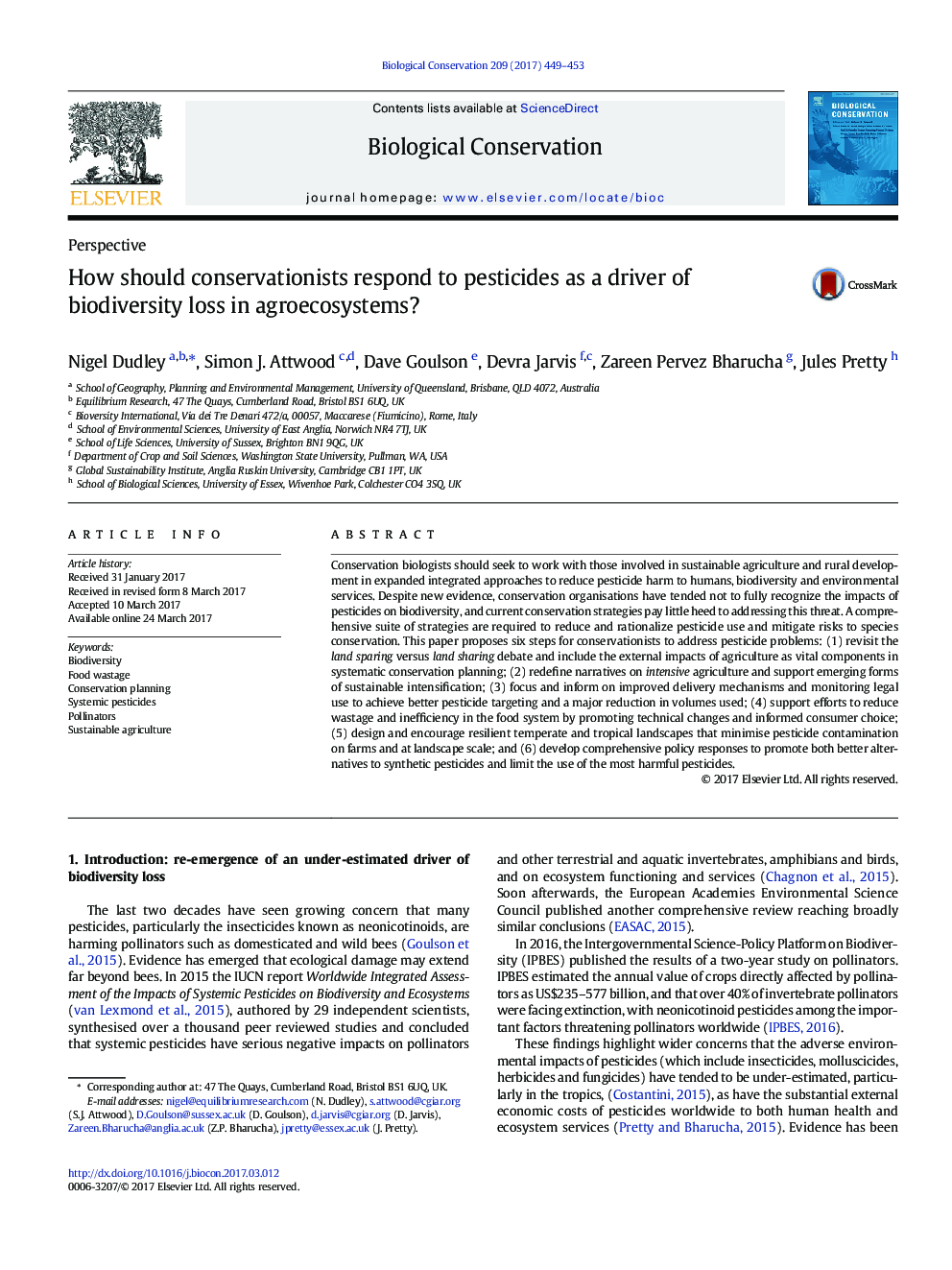| کد مقاله | کد نشریه | سال انتشار | مقاله انگلیسی | نسخه تمام متن |
|---|---|---|---|---|
| 5743365 | 1617893 | 2017 | 5 صفحه PDF | دانلود رایگان |
- Three recent meta-studies suggest that pesticide impacts on biodiversity have frequently been under-estimated
- We propose six necessary responses, aimed at conservationists, researchers and government policy-makers
- Potential pesticide impacts can be recognized and factored into systematic conservation planning, and resilient landscapes designed to minimize environmental contamination
- Pesticide contamination in agriculture can be reduced by promoting effective pesticide reduction strategies, reducing wastage in pesticide delivery systems and developing strong policy responses to control the most hazardous pesticides
- At a more general level, steps to cut down waste throughout the food system will further reduce the need for pesticide application.
Conservation biologists should seek to work with those involved in sustainable agriculture and rural development in expanded integrated approaches to reduce pesticide harm to humans, biodiversity and environmental services. Despite new evidence, conservation organisations have tended not to fully recognize the impacts of pesticides on biodiversity, and current conservation strategies pay little heed to addressing this threat. A comprehensive suite of strategies are required to reduce and rationalize pesticide use and mitigate risks to species conservation. This paper proposes six steps for conservationists to address pesticide problems: (1) revisit the land sparing versus land sharing debate and include the external impacts of agriculture as vital components in systematic conservation planning; (2) redefine narratives on intensive agriculture and support emerging forms of sustainable intensification; (3) focus and inform on improved delivery mechanisms and monitoring legal use to achieve better pesticide targeting and a major reduction in volumes used; (4) support efforts to reduce wastage and inefficiency in the food system by promoting technical changes and informed consumer choice; (5) design and encourage resilient temperate and tropical landscapes that minimise pesticide contamination on farms and at landscape scale; and (6) develop comprehensive policy responses to promote both better alternatives to synthetic pesticides and limit the use of the most harmful pesticides.
Journal: Biological Conservation - Volume 209, May 2017, Pages 449-453
